Daikin Industries Ltd. is a Japanese multinational air conducting company with headquarters in Osaka. Manufacturing a wide range of appliances the company runs operations in Japan, Australia, Chain, India, Europe, the United States, the Middle East, Africa, Latin America, and Southeast Asia. They are the inventors of the VRF (variable refrigerant flow) air conditioner but failed to the trademark, which is why they market their systems as the VRV (variable refrigerant volume).
Founded in 1924, the corporation made headway through the world, taking a slower pace than others. It was not until 2004, that the company entered the North American air conditioning market. From there it took a few years to start offering residential, commercial, and industrial air conditioning units.
To help you out we have listed down some of the most common error codes and troubleshooting for Daikin. Offering consumers a chance to understand the issue at hand before they make a move. We suggest you start by noting down the error code and match it using the list below. Once you have the error code you can easily work your way to the fix, or hire a professional to get it done right the first time around.
Split AC Codes
| Error Codes | Problem |
|---|---|
| 00 | Normal |
| UA | Indoor-outdoor Unit Combination Fault |
| U0 | Refrigerant Shortage |
| U2 | Drop Voltage Or Main Circuit Overvoltage |
| U4 | Failure Of Transmission (Between Indoor Unit And Outdoor Unit) |
| A1 | Indoor Pcb Defectiveness |
| A5 | High Pressure Control Or Freeze-up Protector |
| A6 | Fan Motor Fault |
| C4 | Faulty Heat Exchanger Temperature Sensor |
| C9 | Faulty Suction Air Temperature Sensor |
| EA | Cooling-heating Switching Error |
| E1 | Circuit Board Fault |
| E5 | OL Started |
| E6 | Faulty Compressor Start Up |
| E7 | DC Fan Motor Fault |
| F3 | High Temperature Discharge Pipe Control |
| F6 | High Pressure Control (In Cooling) |
| H0 | Sensor Fault |
| H6 | Operation Halt Due To Faulty Position Detection Sensor |
| H8 | DC Current Sensor Fault |
| H9 | Faulty Suction Air Temperature Sensor |
| J3 | Faulty Discharge Pipe Temperature Sensor |
| J6 | Faulty Heat Exchanger Temperature Sensor |
| L3 | Electrical Parts Heat Fault |
| L4 | High Temperature At Inverter Circuit Heatsink |
| L5 | Output Overcurrent |
| P4 | Faulty Inverter Circuit Heatsink Temperature Sensor |
Led On Outdoor Unit PCB
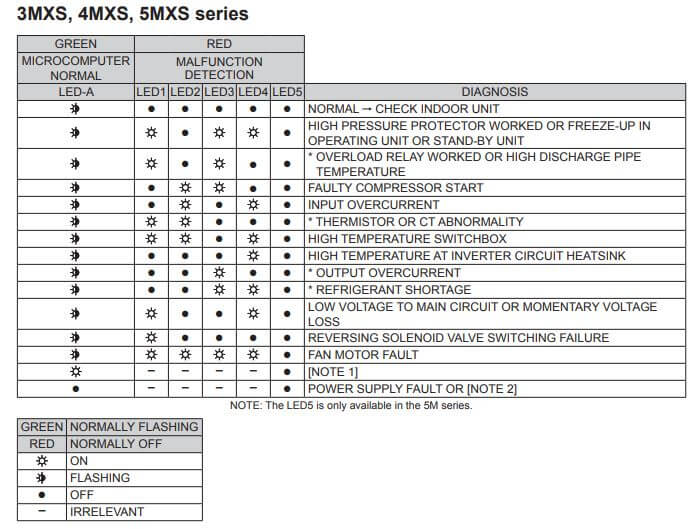
L Series AC Codes
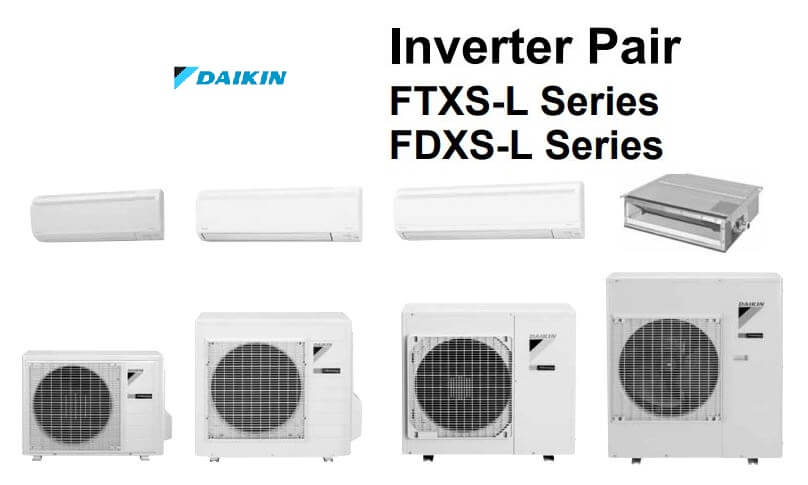
| Error Codes | Meaning |
|---|---|
| 00 | Normal |
| U0 | Refrigerant shortage |
| U2 | Low-voltage detection or over-voltage detection |
| U4 | Signal transmission error (between indoor unit and outdoor unit) |
| UA | Unspecified voltage (between indoor unit and outdoor unit) |
| A1 | Indoor unit PCB abnormality |
| A5 | Freeze-up protection control or heating peak-cut control |
| A6 | Fan motor or related abnormality |
| C4 | Indoor heat exchanger thermistor or related abnormality |
| C9 | Room temperature thermistor or related abnormality |
| E1 | Outdoor unit PCB abnormality |
| E5 | OL activation (compressor overload) |
| E6 | Compressor lock |
| E7 | DC fan lock |
| E8 | Input overcurrent detection |
| EA | FourWay valve abnormality |
| F3 | Discharge pipe temperature control |
| F6 | High pressure control in cooling |
| H0 | Compressor system sensor abnormality |
| H6 | Position sensor abnormality |
| H8 | DC voltage / current sensor abnormality - CT or related abnormality |
| H9 | Outdoor temperature thermistor or related abnormality |
| J3 | Discharge pipe thermistor or related abnormality |
| J6 | Outdoor heat exchanger thermistor or related abnormality |
| L3 | Electrical box temperature rise |
| L4 | Radiation fin temperature rise |
| L5 | Output overcurrent detection |
| P4 | Radiation fin thermistor or related abnormality |
| U7 | Signal transmission error on outdoor unit PCB |
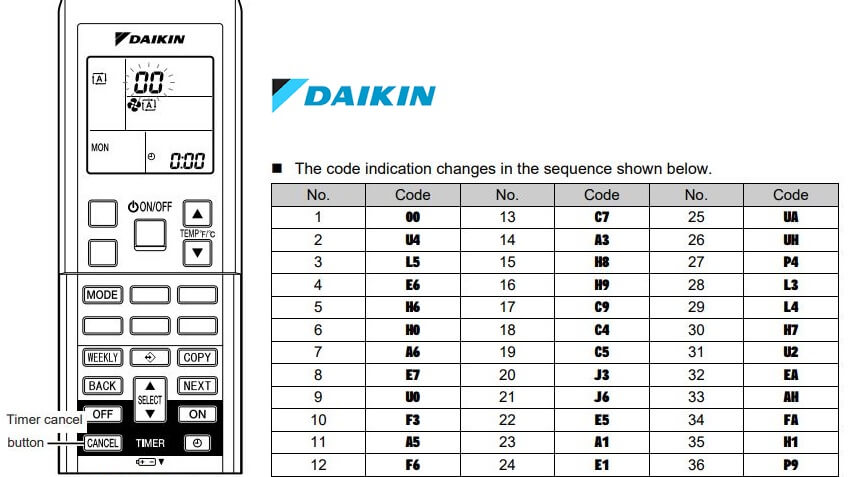
Multi-Split Type AC Codes

Daikin’s multi-split type air conditioning systems offer superior performance, energy-efficiency, and comfort in stylish solutions conforming to all interior spaces and lifestyles. An extensive product lineup utilizes Daikin technology for lower costs and environmental impact. Advanced inverter and heat pump technologies achieve greater efficiency and energy-savings at lower costs. A broad array of models allows the perfect match of style and performance to any interior space.
| Error Codes | Problem |
|---|---|
| 00 | Normal |
| UA | Indoor-Outdoor Unit Combination Fault |
| U0 | Refrigerant Shortage |
| U2 | Drop Voltage or Main Circuit Overvoltage |
| U4 | Failure Of Transmission (Between Indoor Unit and Outdoor Unit) |
| A1 | Indoor PCB Defectiveness |
| A5 | High Pressure Control or Freeze-up Protector |
| A6 | Fan Motor Fault |
| C4 | Faulty Heat Exchanger Temperature Sensor |
| C9 | Faulty Suction Air Temperature Sensor |
| EA | Cooling-Heating Switching Error |
| E1 | Circuit Board Fault |
| E5 | OL Started |
| E6 | Faulty Compressor Start Up |
| E7 | DC Fan Motor Fault |
| E8 | Overcurrent Input |
| F3 | High Temperature Discharge Pipe Control |
| F6 | High Pressure Control (In Cooling) |
| H0 | Sensor Fault |
| H6 | Operation Halt Due To Faulty Position Detection Sensor |
| H8 | DC Current Sensor Fault |
| H9 | Faulty Suction Air Temperature Sensor |
| J3 | Faulty Discharge Pipe Temperature Sensor |
| J6 | Faulty Heat Exchanger Temperature Sensor |
| L3 | Electrical Parts Heat Fault |
| L4 | High Temperature At Inverter Circuit Heatsink |
| L5 | Output Overcurrent |
| P4 | Faulty Inverter Circuit Heatsink Temperature Sensor |
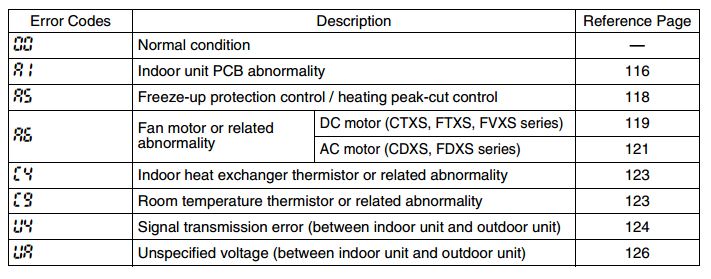
Daikin VRV IV (4)
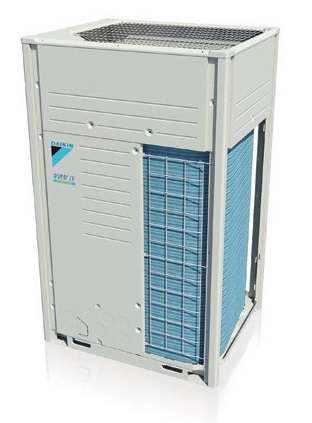
The following will be displayed on the screen when an error (or a warning) occurs during operation. Check the error code and take the corrective action specified for the particular model. If unit stops due to an error, the operation indicating LED on the signal receiving part of indoor unit blinks. The error code can be determined by following the procedure described below. (The error code is displayed when an operation error has occurred. In normal condition, the error code of the last problem is displayed.)
| Error Codes | Problem |
|---|---|
| A1 | EEPROM failure (indoor) |
| A3 | Drain system malfunction (indoor) |
| A6 | Fan motor malfunction (indoor) |
| A7 | Swing flap motor malfunction (indoor) |
| A9 | Expansion valve malfunction (indoor) |
| AF | Drain malfunction (indoor unit) |
| AH | Filter dust chamber malfunction (indoor) |
| AJ | Capacity setting malfunction (indoor) |
| C1 | Transmission malfunction between main PCB and sub PCB (indoor) |
| C4 | Heat exchanger thermistor malfunction (indoor; liquid) |
| C5 | Heat exchanger thermistor malfunction (indoor; gas) |
| C9 | Suction air thermistor malfunction (indoor) |
| CA | Discharge air thermistor malfunction (indoor) |
| CE | Movement detector or floor temperature sensor malfunction (indoor) |
| CJ | User interface thermistor malfunction (indoor) |
| E1 | PCB malfunction (outdoor) |
| E2 | Current leakage detector was activated (outdoor) |
| E3 | High pressure switch was activated |
| E4 | Low pressure malfunction (outdoor) |
| E5 | Compressor lock detection (outdoor) |
| E7 | Fan motor malfunction (outdoor) |
| E9 | Electronic expansion valve malfunction (outdoor) |
| F3 | Discharge temperature malfunction (outdoor) |
| F4 | Abnormal suction temperature (outdoor) |
| F6 | Refrigerant overcharge detection |
| H3 | High pressure switch malfunction |
| H4 | Low pressure switch malfunction |
| H7 | Fan motor trouble (outdoor) |
| H9 | Ambient temperature sensor malfunction (outdoor) |
| J1 | Pressure sensor malfunction |
| J2 | Current sensor malfunction |
| J3 | Discharge temperature sensor malfunction (outdoor) |
| J4 | Heat exchanger gas temperature sensor malfunction (outdoor) |
| J5 | Suction temperature sensor malfunction (outdoor) |
| J6 | De-icing temperature sensor malfunction (outdoor) |
| J7 | Liquid temperature sensor (after subcool HE) malfunction (outdoor) |
| J8 | Liquid temperature sensor (coil) malfunction (outdoor) |
| J9 | Gas temperature sensor (after subcool HE) malfunction (outdoor) |
| JA | High pressure sensor malfunction (S1NPH) |
| JC | Low pressure sensor malfunction (S1NPL) |
| L1 | INV PCB abnormal |
| L4 | Fin temperature abnormal |
| L5 | Inverter PCB faulty |
| L8 | Compressor over current detected |
| L9 | Compressor lock (startup) |
| LC | Transmission outdoor unit - inverter: INV transmission trouble |
| P1 | INV unbalanced power supply voltage |
| P2 | Autocharge operation related |
| P4 | Fin thermistor malfunction |
| P8 | Autocharge operation related |
| P9 | Autocharge operation related |
| PE | Autocharge operation related |
| PJ | Capacity setting malfunction (outdoor) |
| U0 | Abnormal low pressure drop, faulty expansion valve |
| U1 | Reversed power supply phase malfunction |
| U2 | INV voltage power shortage |
| U3 | System test run not yet executed |
| U4 | Faulty wiring indoor/outdoor |
| U5 | Abnormal user interface - indoor communication |
| U7 | Faulty wiring to Q1/Q2 |
| U8 | Abnormal main-sub user interface communication |
| U9 | System mismatch. Wrong type of indoor units combined. Indoor unit malfunction |
| UA | Connection malfunction over indoor units or type mismatch |
| UC | Centralized address duplication |
| UE | Malfunction in communication centralized control device - indoor unit |
| UF | Auto address malfunction (inconsistency) |
| UH | Auto address malfunction (inconsistency) |
Daikin VRV III (3)
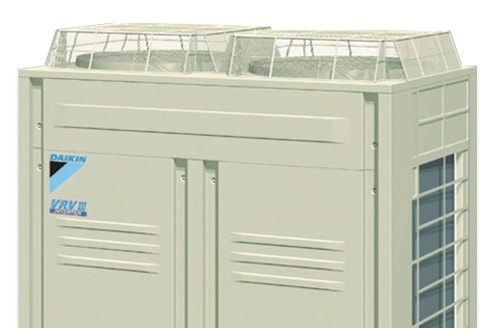
If operation stops due to malfunction, the remote control operation LED blinks, and malfunction code is displayed. (Even if stop operation is carried out, malfunction contents are displayed when the inspection mode is entered.)
1. Pressing the INSPECTION/TEST button will blink the check indication.
2. While in check mode, pressing and holding the ON/OFF button for a period of five seconds or more will clear the failure history indication shown above.
| Error Codes | Problem |
|---|---|
| A0 | Error of external protection device |
| A1 | PC board defect, E2 PROM defect |
| A3 | Malfunction of drain level control system (S1L) |
| A6 | Fan motor (M1F) lock, overload |
| A7 | Malfunction of swing flap motor (M1S) |
| A9 | Malfunction of moving part of electronic expansion valve (Y1E) |
| AF | Drain level above limit |
| AJ | Malfunction of capacity setting |
| C4 | Malfunction of thermistor (R2T) for heat exchange |
| C5 | Malfunction of thermistor (R3T) for gas pipes |
| C9 | Malfunction of thermistor (R1T) for air inlet |
| CA | Malfunction of thermistor for air inlet |
| CJ | 898 Malfunction of thermostat sensor in remote control |
| E1 | PC board defect |
| E3 | Actuation of high pressure switch |
| E4 | Actuation of low pressure sensor |
| E5 | Compressor motor lock |
| E6 | Standard compressor lock or over current |
| E7 | Malfunction of outdoor unit fan motor |
| E9 | Malfunction of moving part of electronic expansion valve (Y1E, Y2E) |
| F3 | Abnormal discharge pipe temperature |
| F6 | Refrigerant overcharged |
| H3 | Failure of high pressure switch |
| H4 | Actuation of low pressure switch |
| H7 | Abnormal outdoor fan motor signal |
| H9 | Malfunction of thermistor (R1T) for outdoor air |
| J2 | Current sensor malfunction |
| J3 | Malfunction of discharge pipe thermistor |
| J5 | Malfunction of thermistor (R3T, R5T) for suction pipe |
| J6 | Malfunction of thermistor (R6T) for heat exchanger |
| J7 | Malfunction of receiver outlet liquid pipe thermistor (R7T) |
| J9 | Malfunction of subcooling heat exchanger gas pipe thermistor |
| JA | Malfunction of discharge pipe pressure sensor |
| JC | Malfunction of suction pipe pressure sensor |
| L0 | Inverter system error |
| L1 | Malfunction of PC board |
| L4 | Malfunction of inverter radiating fin temperature rise |
| L5 | DC output overcurrent of inverter compressor |
| L8 | Inverter current abnormal |
| L9 | Inverter start up error |
| LA | Malfunction of power unit |
| LC | Malfunction of transmission between inverter and control PC board |
| P1 | High voltage of capacitor in main inverter circuit |
| U0 | Low pressure drop due to refrigerant shortage or electronic expansion valve failure |
| U1 | Reverse phase / open phase |
| U2 | Power supply insufficient or instantaneous failure |
| U3 | Check operation is not completed |
| U4 | Malfunction of transmission between indoor and outdoor units |
| U5 | Malfunction of transmission between remote control and indoor unit |
| U6 | Failure of remote control PC board or setting during control by remote control |
| U7 | Malfunction of transmission between outdoor units |
| U8 | Malfunction of transmission between main and sub remote controls |
| U9 | Malfunction of transmission between indoor unit and outdoor unit in the same system |
| UA | Improper combination of indoor and outdoor units,indoor units and remote control |
| UC | Address duplication of central remote control |
| UE | Malfunction of transmission between central remote control and indoor unit |
| UF | Refrigerant system not set, incompatible wiring /piping |
| UH | Malfunction of system, refrigerant system address undefined |
| UE | Malfunction of transmission between central remote control and indoor unit |
| M1 | Central remote control PC board defect Schedule timer PC board defect |
| M8 | Malfunction of transmission between optional controllers for centralized control |
| MA | Improper combination of optional controllers for centralized control |
| MC | Address duplication, improper setting |
| 64 | Indoor unitís air thermistor error |
| 65 | Outside air thermistor error |
| 68 | Malfunction of HVU |
| 6A | Damper system alarm |
| 6A | Damper system + thermistor error |
| 6F | Malfunction of simple remote control |
| 94 | Internal transmission error |
Troubleshooting
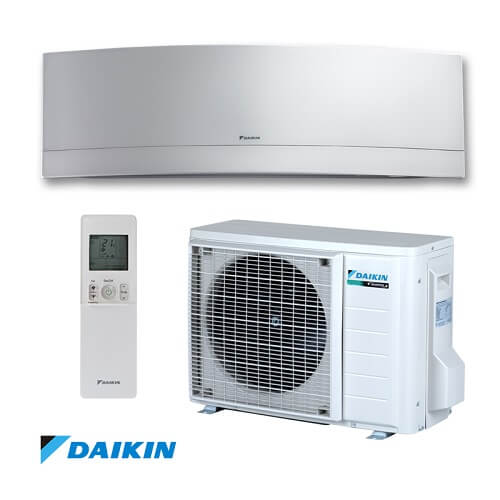
The following incidents do not indicate a malfunctioning air conditioner and have explanations. The air conditioner can continue to operate.
Case: The outdoor unit emits water or steam.
Explanation:
- In HEAT operation; The frost on the outdoor unit melts into water or steam when the air conditioner is in defrost operation.
- In COOL or DRY operation; Moisture in the air condenses into water on the cool surface of outdoor unit piping and drips.
Case: Mist comes out of the indoor unit.
Explanation:
- This happens when the air in the room is cooled into mist by the cold airflow during COOL operation.
- This is because the air in the room is cooled by the heat exchanger and becomes mist during defrost operation.
Case: The indoor unit gives out odor
Explanation:
- This happens when smells of the room, furniture, or cigarettes are absorbed into the unit and discharged with the airflow. If this happens, it is recommended to have the indoor unit washed by a technician. Consult the service shop where you purchased the air conditioner.
Case: The outdoor fan rotates while the air conditioner is not in operation.
Explanation:
- After operation is stopped; The outdoor fan continues rotating for another 60 seconds for system protection.
- While the air conditioner is not in operation; When the outdoor temperature is very high, the outdoor fan starts rotating for system protection.
Case: Possible sounds.
Explanation:
- Flowing water; Generated because the refrigerant in the air conditioner is flowing. This is a pumping sound of the water in the air conditioner and heard when the water is pumped out from the air conditioner in cooling or drying operation. The refrigerant flows in the air conditioner even if the air conditioner is not working when the indoor units in other rooms are in operation.
- Blowing; Generated when the flow of the refrigerant in the air conditioner is switched over
- Pinging; Generated when the size of the air conditioner slightly expands or shrinks as a result of temperature changes.
Case:The air conditioner does not operate
Check:
- Is a breaker off or a fuse blown?
- Is there a power failure?
- Are batteries set in the remote controller?
- Is the timer setting correct?
Case: Cooling (Heating) effect is poor
Check:
- Are the air filters clean?
- Is there anything to block the air inlet or the outlet of the indoor and the outdoor units?
- Is the temperature setting appropriate?
- Are the windows and doors closed?
- Are the airflow rate and the airflow direction set appropriately?
Case: Operation stopped suddenly
Check:
- Are the air filters clean?
- Is there anything to block the air inlet or the outlet of the indoor and the outdoor units?
- Clean the air filters or take all obstacles away and turn the breaker off. Then turn it on again and try operating the air conditioner with the remote controller. If the lamp still flashes, call the service shop where you purchased the air conditioner.
- Are operation modes all the same for indoor units connected to outdoor units in the multi system?
Manuals PDF
Simple Self-Diagnosis by Malfunction Code
References
daikinac.com/content/assets/DOC/ServiceManuals
ft.com/content/a677c087-ef43-4100-9705-27e131846625
- Unionaire Air Conditioner Error Codes - December 1, 2025
- Ameristar AC Error Codes and Troubleshooting - December 1, 2025
- Rheem Pool Heat Pump Error Codes - December 1, 2025

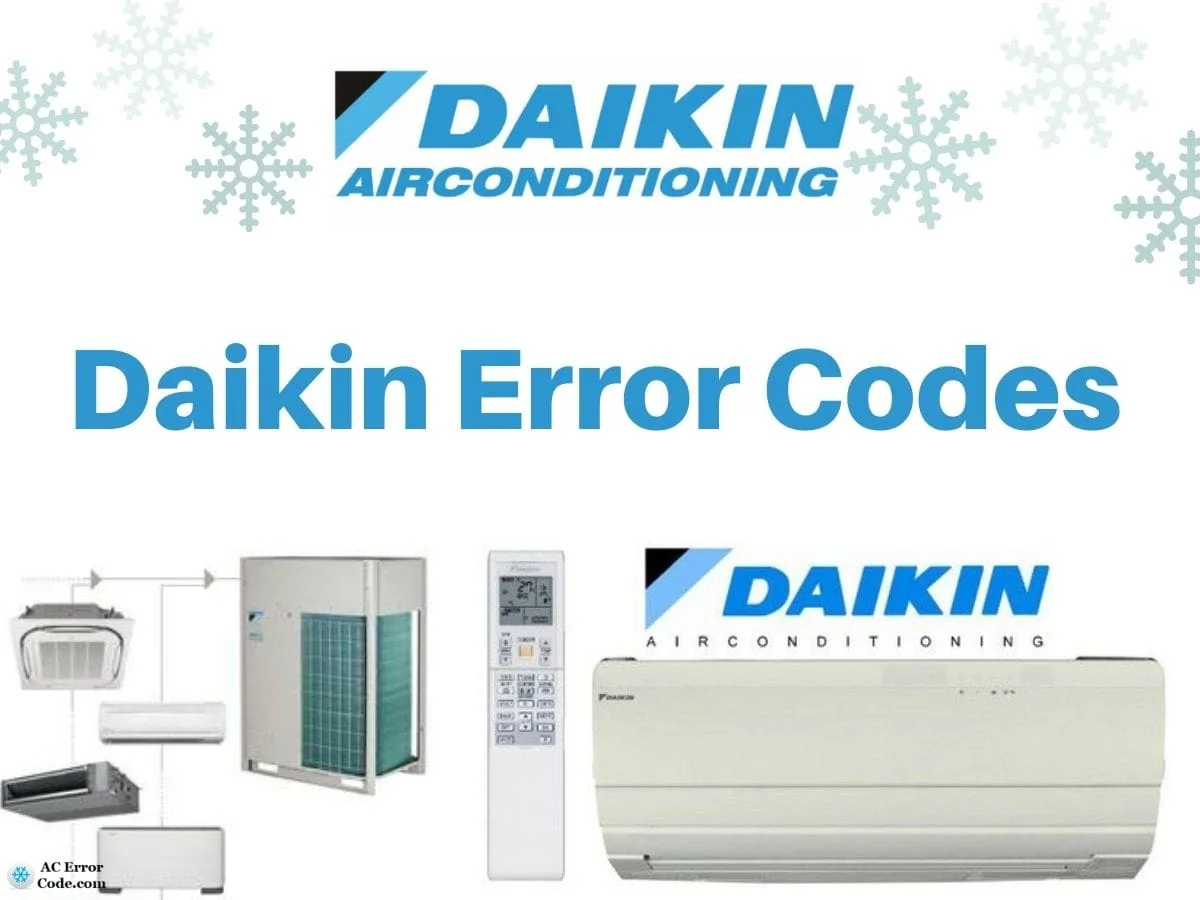
C-Er error code ,can u help me to find this error code..
Daikin Comm. Err. Blue triangle with hazard sign
What is f4-13 and f4-7 errror code? of daikin VRF IV
duted hideaway daikin ry140- r22 gas – ”j2” error code. which outdoor sensor is faulty?
Malfunction of current sensor of compressor. Defective current sensor. Defective compressor. Defective outdoor unit PCB.
What do I do if I;m getting error code
u-4 – 01?